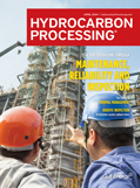Greenhouse Gases
Denmark announces alliance on green fuels in India
Maersk, one of the founding members of the Green Fuels Alliance India, will take a seat on the steering committee as one of the representatives of the maritime industry for the conversations around green fuels.
Korean Air to expand cargo SAF program with Yusen Logistics
Korean Air has partnered with Yusen Logistics, a global logistics company, to further promote the use of SAF in the air cargo industry.
8 Rivers announces Cormorant Clean Energy Project, the first commercial deployment of 8RH2 ultra-low carbon hydrogen technology
The ultra-low-carbon ammonia production facility located in Port Arthur, Texas will produce an estimated 880,000 tons of ammonia per year and accelerate decarbonization of transportation, industrial processes, and agriculture across the Gulf Coast region.
ADNOC makes strategic investment in Storegga, broadening its carbon management portfolio
ADNOC announced it has taken a 10.1% equity stake in Storegga to become a lead investor in the UK-based company that focuses on the development of global carbon capture and storage projects.
Air Europa to fly to Havana with Cepsa's second-generation biofuels
Cepsa and Air Europa have sealed an alliance whereby the energy company will supply 14.4 tons of SAF to the airline for one year to cover the first monthly Madrid-Havana flight.
Jet Aviation partners with World Fuel Services to offer SAF in Montana and Arizona (U.S.)
Jet Aviation announced that it has signed an agreement with World Fuel Services to secure and offer SAF on-site at its FBOs in Bozeman, Montana, and Scottsdale, Arizona, effective immediately.
Executive Viewpoint: A lifecycle assessment on chemically recycling plastics: A conversation with Neste’s Maiju Helin
HP spoke with Maiju Helin, Head of Sustainability and Regulatory Transformation Renewable Polymers and Chemicals, Neste, regarding Neste’s lifecycle assessment report on chemically recycling waste plastic.
India's Gujarat signs investment pacts worth $18.75 B with several firms
Companies across many sectors signed initial investment pacts totaling $18.75 B for projects they will build in India's western state of Gujarat, including green hydrogen and green ammonia facilities.
EU to investigate Chinese biodiesel dumping allegation
The European Union said it would begin an anti-dumping investigation into biodiesel imports from China, which the bloc's industry says has slashed domestic production.
Höegh Autoliners and VARO partner to accelerate sustainable shipping
VARO Energy and Höegh Autoliners announced a strategic partnership aimed at advancing the decarbonization of maritime sectors. This collaboration focuses on supplying 100% advanced biofuels for deep-sea transportation from Europe, underpinning both companies’ voluntary commitments to superior sustainability standards.

- bp’s Cherry Point refinery turns feedstock into renewable diesel fuel. Here’s how. 5/7
- Heavy oil shortages are driving up refiners' cost 5/7
- U.S. West Coast refinery demand for hydrogen increasingly met by merchant suppliers 5/7
- BASF invests in capacity expansion of Basoflux® range of paraffin inhibitors in Spain 5/7
- Shell in talks to sell Malaysia fuel stations to Saudi Aramco 5/7
- India's fuel demand increases more than 6% y-o-y 5/7




